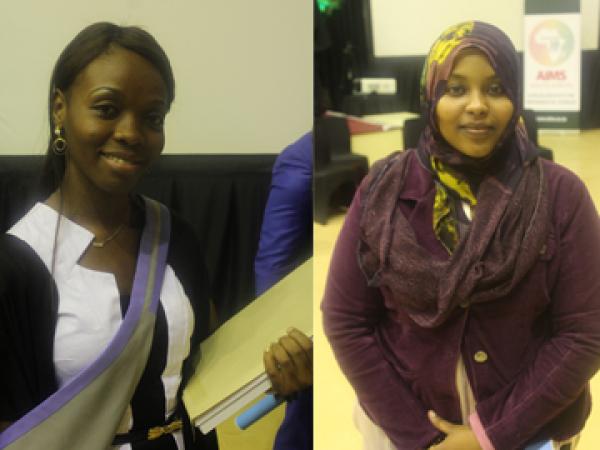Mathematics a key to Africa’s future

Hopes are high for 49 students from 20 different African countries who graduated with a master’s degree in Mathematics in Cape Town this week. The students – from countries including Egypt, Ethiopia, Ghana, Kenya, Nigeria, Rwanda and South Africa – completed their studies at the African Institute for Mathematical Sciences (AIMS) located in Muizenberg.
Former South African president Kgalema Mothlanthe attended the ceremony on 25 June.
“No modern society progressed without Maths as a driving impulse … South Africa, Africa and the rest of the world looks forward to your contribution. I hope that you will put this highly privileged knowledge at the service of society,” Mothlanthe told graduates.
“Students who do exceptionally well in Mathematics and natural sciences are the brain power [of society]. Innovation and invention is their domain. If we hope to take Africa higher we need more mathematicians and scientists.”
AIMS director Barry Green said their intention was that the “flame for mathematics has to be ignited in the young … This is what we do at AIMS … to create a new future for Africa,” he said.
Students travel on scholarship from various parts of the continent and are housed in Cape Town throughout their studies. They study with partner institutions, including the University of the Western Cape, University of Cape Town and the University of Stellenbosch.
Horace Ekete from the Democratic Republic of Congo (DRC) completed a degree in computer science before traveling to Cape Town. She said she planned to return to the city to further her studies.
“For now, I will go back to my country. I am a computer scientist and want to continue with my academic career. But we don’t have this quality of education in DRC,” said Ekete.
She said, when she started the master’s degree, she did not “even know the importance of mathematics … It was not easy to believe that mathematics can help for the development of country. Mathematics is everywhere,” said Ekete.
“You could have a problem related to health or the economy and we can apply mathematics models to solve the problem.”
“We learn about mathematics models. You could have a problem related to health or the economy and we can apply mathematics models to solve the problem.”
Saga Abdalla from Sudan completed a degree in physics before embarking on her master’s degree in mathematics.
She said of AIMS: “This programme can change Africa. It is a key to go to other places … After I came to AIMS, I applied for the Italian scholarship. I think they selected me because of AIMS because we have good professors.”
Abdalla said it was the first time she traveled to a foreign country where Arabic was not widely spoken.
“It was strange because there were so many people speaking different languages. The advantage of living with many people is that you can understand different people,” she said.
Abdalla intends to “work in Sudan and transfer what I have learned”.
“The education system in Sudan can improve. I see myself playing a role in that,” she said.
Fanuel Otieno from Kenya will return to his country to do an internship with a statistics centre.
“I’ll be doing data analysis specifically linked to farming and agriculture,” he said.
His goal is to ultimately “be a top, professional statistician who consults with Kenyan organisations in solving their statistical problems”.
“The master’s course has increased my mathematical knowledge. We are able to see how we can apply mathematics to solve problems in everyday life,” said Otieno.
“I feel very independent now. I can do research on my own.”
Otieno said the teaching method at AIMS differed from his studies in Kenya.
“In Kenya, the institutions are exam and assessment oriented. At AIMS we do assignments, and you are encouraged to spend time researching,” he said.
“When you do the assignment you have a broad understanding of what you have learned.”
AIMS describes itself as a “pan-African network of centres of excellence for postgraduate education, research and outreach in the mathematical sciences”.
It is a partnership between six universities: UWC, UCT, Stellenbosch University, Cambridge University, Oxford University and the University of Paris-Suid. It was established in 2003 and hundreds of students have lived at its Cape Town main building since then.
Support independent journalism
Donate using Payfast

Don't miss out on the latest news
We respect your privacy, and promise we won't spam you.

This article is licensed under a Creative Commons Attribution-NoDerivatives 4.0 International License.
